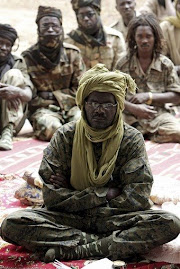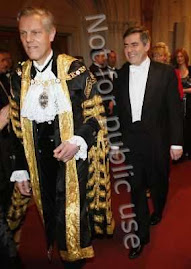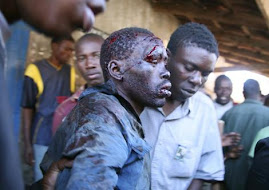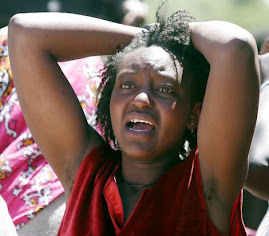While perusing through the introductory draft of "Integral" before publishing it on Saturday, June 28th, 2008, a colleague close to this author, reacted to the whole idea of addressing disunity in South Sudan. "What is the concept of this argument?" He inquired. "Why do people fear to address the issue of South Sudan's separation?" He asked.
"Integral" highly respects this individual and believes that he, before anybody could know about the "Integral" column, did open the debate. It is true that there are people who feel uncomfortable documenting their views on 'separation' of South Sudan from the Sudan in the North – just like there are Southerners who wouldn't like to mention 'unity of Sudan', but both engage in discussions of the issues but not in newspapers or public fora.
The general concept of the "Integral" is to address disunity in South Sudan. However, disunity in South Sudan cannot be addressed in the absence of Sudan's unity. Because South Sudanese leaders, including those interested in cessation, are not only holding some of this country's top government positions but they are major decision makers in the country. Some of them have not shied away from calling for the unity of this country based on newer basis.
SPLM continues to call for the establishment of a new Sudan. The original concept of the new Sudan as conceived by the late Dr John Garang de Mabior is a "united, democratic and secular Sudan" based on Sudanese diversity. Hypothetically, it is difficult for South Sudanese leaders to work for unity of the Sudan when they have not united South Sudan?
In its maiden feature, "Integral" identified – amongst other elements – tribalism, nepotism, land grabbing and occupation, greed for government power, tendency to promote lawlessness by deliberately ignoring to establish law and order and lack of interest in embracing democratic principles as main causes for disunity in South Sudan. Let us look at each and every one of these causes and identify elements within it that disunite South Sudanese.
Tribalism is a noun that means "loyalty to a tribe." It originates from another noun: tribe, which means a "group of clans or families believed to have a common ancestry", (Collins, 2000:635).
"Integral" views tribalism as an important organisation in societies because it ensures unity of a tribe. It eases common difficulties in achieving unity of purpose in a tribe. It secures the tribe from any dangers in case it is threatened. If led by wise people, it could generally work towards ensuring universal peace and establishment of law and order within a larger community of people or state. But this means that tribalism will have to explore newer horizons like looking beyond the tribe. Social Contract theorists would understand this perfectly well.
It is human to practice tribalism but a tribe that practices tribalism should be mindful of other tribes' interests. Thus, one would argue, that there is obviously no reason for any tribe in South Sudan to insist that it mainly fought the war and as such tribes X, Y and Z which did not participate in the war have to be physically abused, robbed of their belongings, tortured or even killed. It is the physical abuse of innocent citizens, robbing of their belongings, torturing and even killing them – in a nutshell: abusing peoples' basic human rights in the name of tribalism – promotes disunity in South Sudan.
GoSS, under 1st-Lt-Gen. Salva Kiir Mayardit, is believed to be trying its best under the circumstances but has to redouble its efforts to arrest tribalism in South Sudan. The parliament of South Sudan and those of the States should enact laws that outlaw the practice of tribalism in South Sudan. An anti-tribalism commission – charged with the responsibilities of combating tribal elements within South Sudan communities – should be established. Any individual(s) caught practicing tribalism should be removed from public office(s), arrested, tried and convicted of practicing tribalism; and should be denied any public office(s) in future.
Saturday, June 28, 2008
Disunity in South Sudan II
Disunity in South Sudan I
"Integral" is a new column that has effectively replaced "Events", a previous column in which Ohiyok D. Oduho wrote his regular features. "Events" column had moved from Sudan Vision English Daily to The Advocate English Daily. It had been dealing with current events in the country and other countries neighbouring the Sudan.
"Integral" thus takes this opportunity to thank the Chairman, Board of Directors and Editor-in-Chief of Khartoum Monitor Daily for approving this space, which officially sanctions "Integral" to become an integral part of Khartoum Monitor Daily.
Unlike "Events", "Integral" would specifically be addressing – amongst others – issues pertaining to disunity of the South Sudanese people. Being an essential part of the whole Sudan, South Sudan needs unity of its people so that its leaders could seriously focus on what the people want and, in unison, approach the Sudanese unity, which shall obviously need a redefinition.
The Sudanese unity now being salvaged was mishandled by its previous leaders and the mess is being cleaned up by the current leadership – a matter that has continued to nurture mistrust between the Sudanese people, especially the pioneers of the comprehensive Peace Agreement (CPA): NCP and SPLM. Redefinition of Sudan's future unity would mean adopting a new method for coexistence so that no Sudanese will ever again be made to feel inferior or superior as was the characteristic of the undefined Sudanese unity, which the CPA is trying to enliven.
A number of South Sudanese have tried their bests to address these issues of disunity. Articles were and continue to be written in newspapers and political rallies addressed. Some of those who addressed these issues of disunity did suggest solutions. Others have been so harsh that they would widen rather than narrow the gap of disunity in South Sudan. The issues of disunity that need serious discussion are many. However, "Integral" would only mention the most common: tribalism, nepotism, land grabbing and occupation, greed for government power, tendency to promote lawlessness by deliberately ignoring to establish law and order and lack of interest in embracing democratic principles – all these could be accommodated in one word – Corruption.
This corruption has – in many ways – victimized people in South Sudan. This victimization has become a common feeling in South Sudan and has undoubtedly alienated the corrupt and their kith and kin from the victimized. But as human beings, however, the victimized are resisting this kind of attitude. Thus the victimizer (corrupt, kith and kin) and the victimized (alienated) are in a serious process of incompatible attitudes directed towards each other and that causes disunity. Disunity breeds conflict; and again if one asks: is conflict the aim of the corrupt, kith and kin in the South? May be not because the corrupt, like other citizens, need to enjoy life and own businesses and conflict is the least they would want to hear or experience.
However, since every tribe in the South is as important and an integral part of the South as the other tribes, all of them need to reexamine themselves, acknowledge their mistakes and accept to conciliate so that unity in diversity could be realised. It should be noted, however, that South Sudanese are not going to unite through dislike, hate and by pitting one against the other. Those wishing to disunite the South have no interest of the South and by extension that of the Sudan at heart.
"Integral" calls on South Sudanese journalists and Sudanese of goodwill to join "Integral" in debating on whether or not it is in the interest of South Sudan and its people that corruption is exposed and corrupt individuals removed from public offices to help the people of South Sudan achieve unity.
"Integral" is open to Sudanese who are interested in the debate. Contributions each in 600 words are welcome. "Integral" will be published on Mondays, Wednesdays and Fridays on this page.















